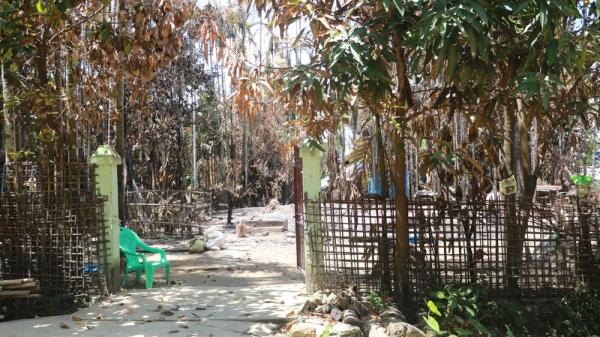On 3 September, two villages in Rakhine State were attacked by the Tatmadaw forcing those staying at local quarantine centres to flee. According to Development Media Group, 166 houses in the two villages had been destroyed and two men shot dead overnight. In the morning, despite some waiting to receive COVID-19 test results, “everyone in the quarantine centre went home.” From both villages, around 8, 000 villagers had fled.
Two days after the attack, civilians had returned to the quarantine centre in one of the villages, according to Al-Jazeera. By law, they were required to stay at the centre for three weeks. However, the manager had closed the facility because of the conflict and advised the remaining residents to self-quarantine at home. For those displaced by the attacks, self-quarantine is almost impossible as social distancing is not an option and food scarcity is an increasing concern as local communities struggle to accommodate new arrivals. It is unknown when the quarantine centre will open again. Nevertheless, the United Nations World Food Programme has signed an agreement with the Rakhine state government for the provision of short-term food assistance at the quarantine centres across Rakhine State.
According to Myanmar Now, an independent news service for Myanmar, most townships in Rakhine State have been under lockdown and night-time curfew since the beginning of August. However, the Tatmadaw has refused to take this into account and consider a ceasefire. It is deemed that the threat of COVID-19 will continue to pale for civilians in significance compared to the ongoing conflict.
To know more, visit:
https://www.aljazeera.com/news/2020/09/rakhine-military-feared-coronavirus-200913234754274.html
Author: Catherine Gregoire; Editor: Sara Gorelli







